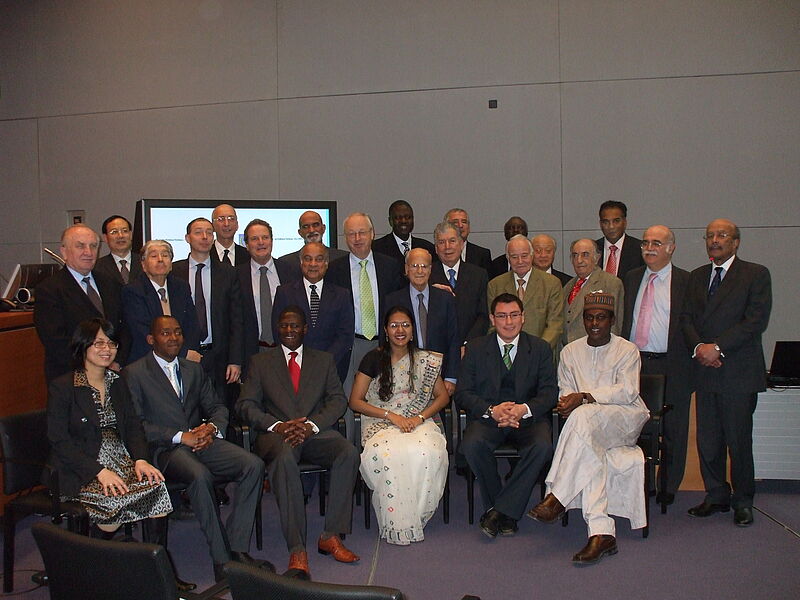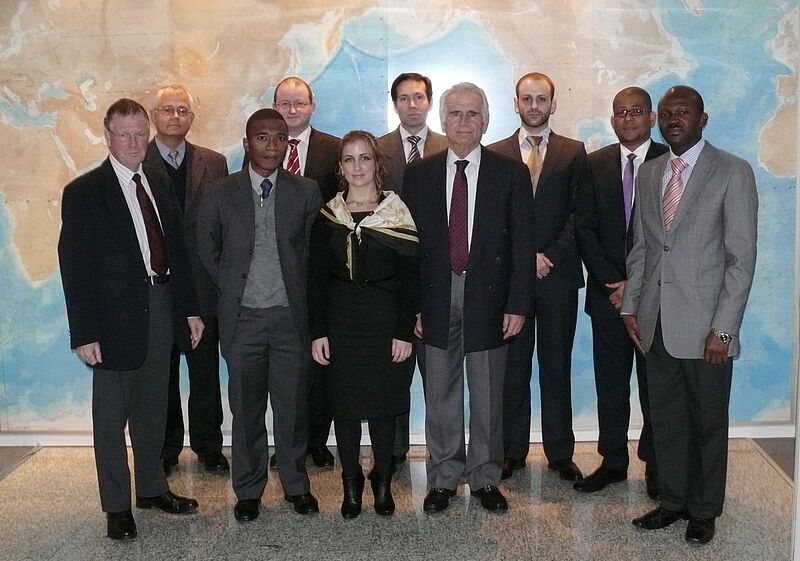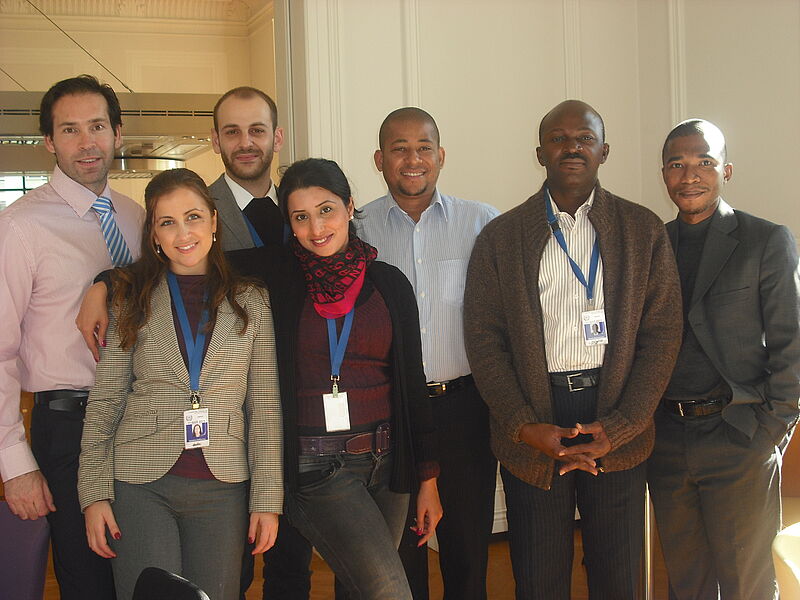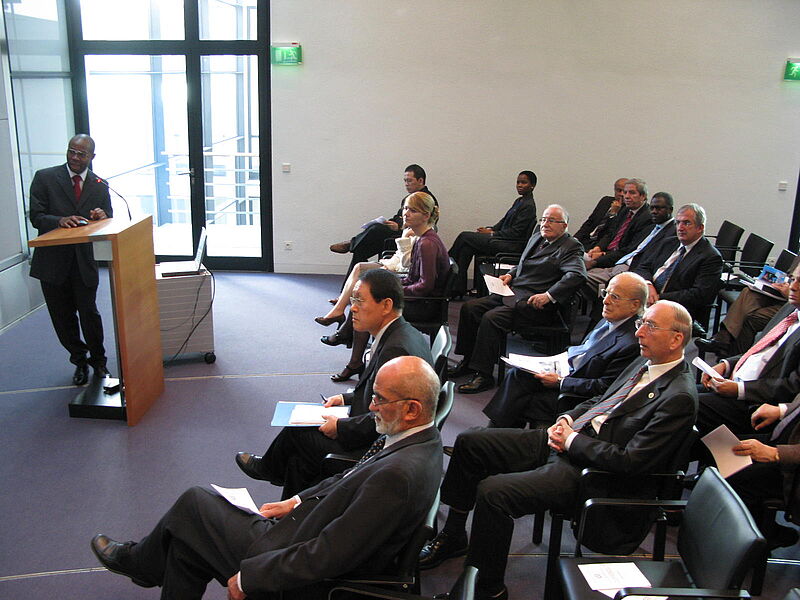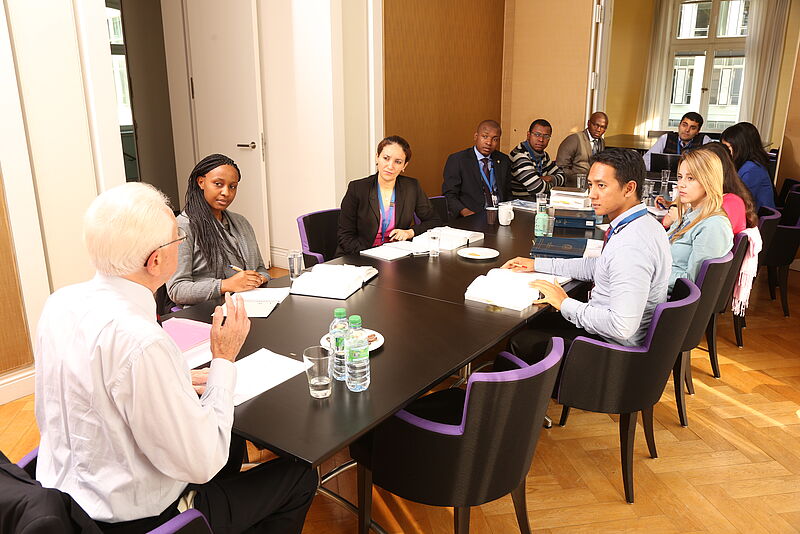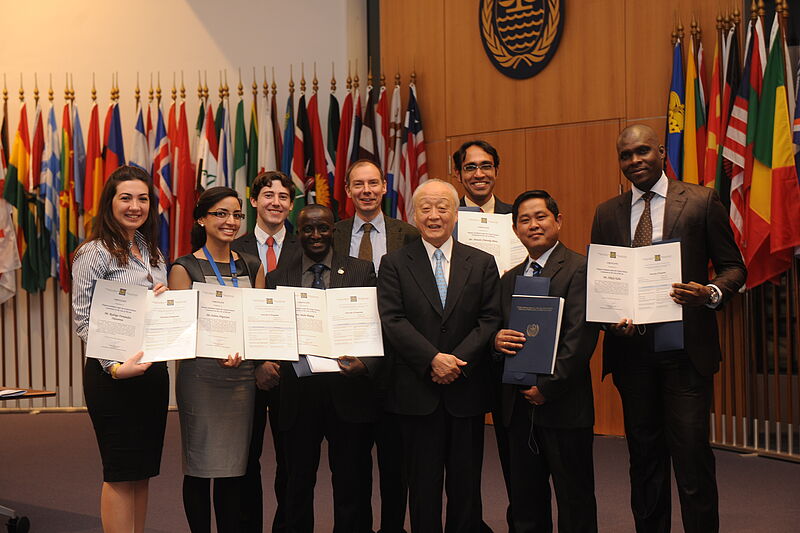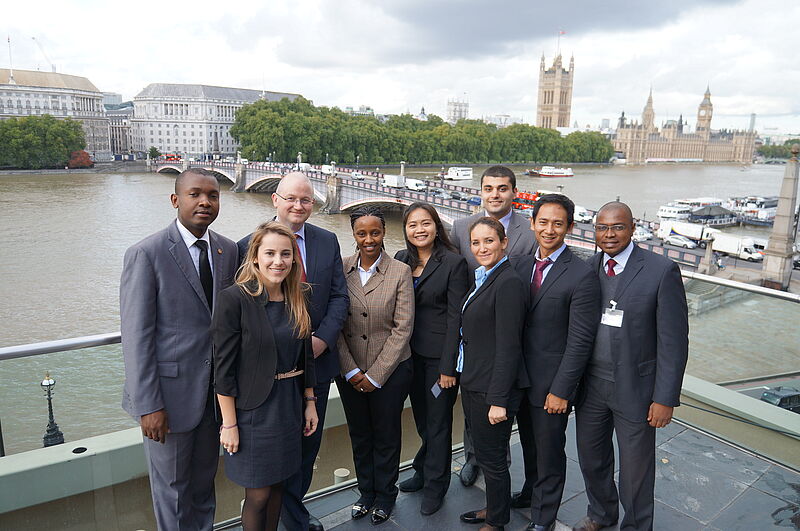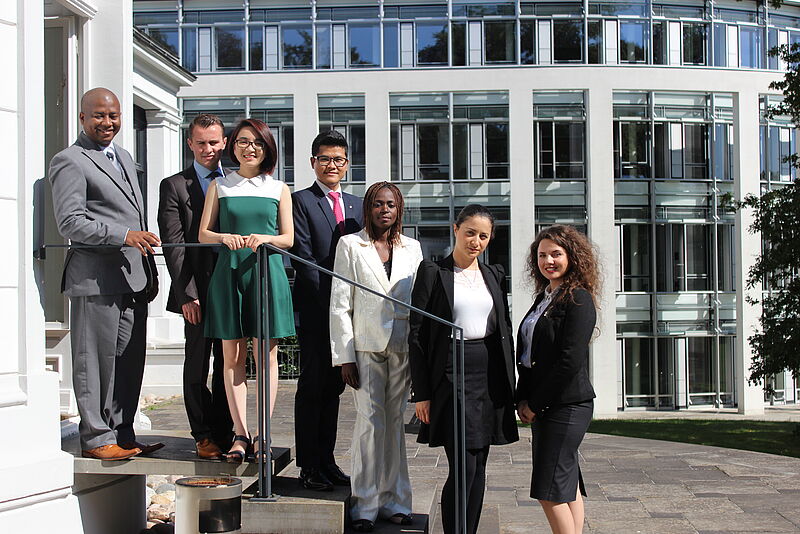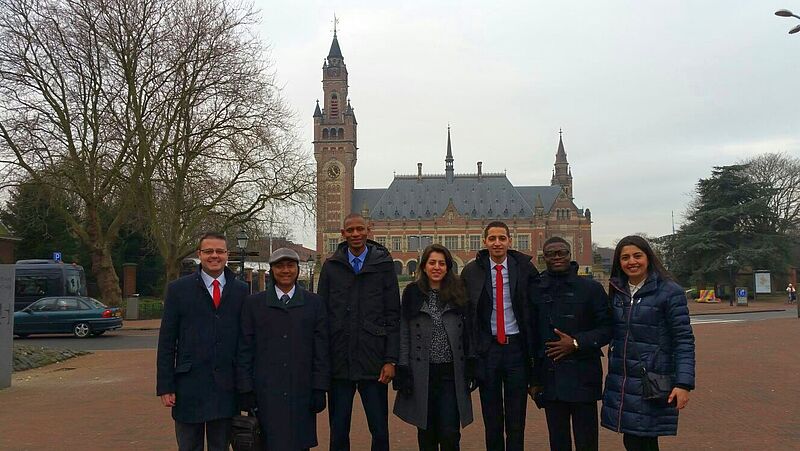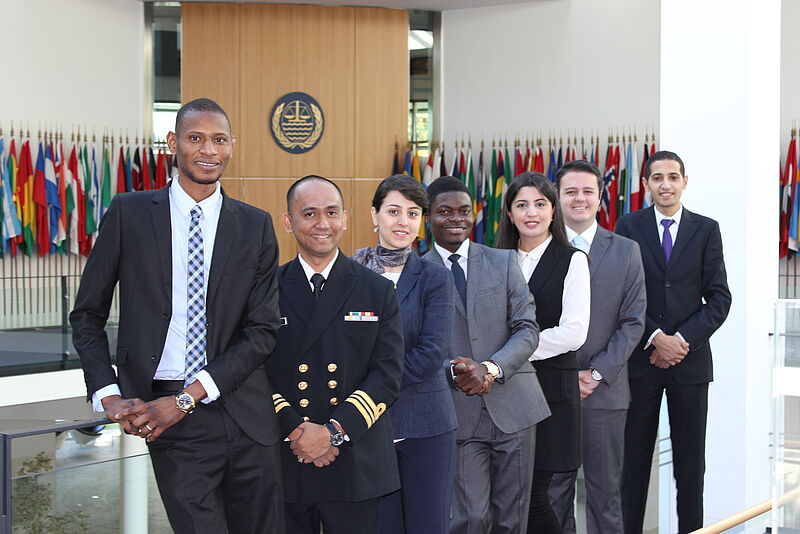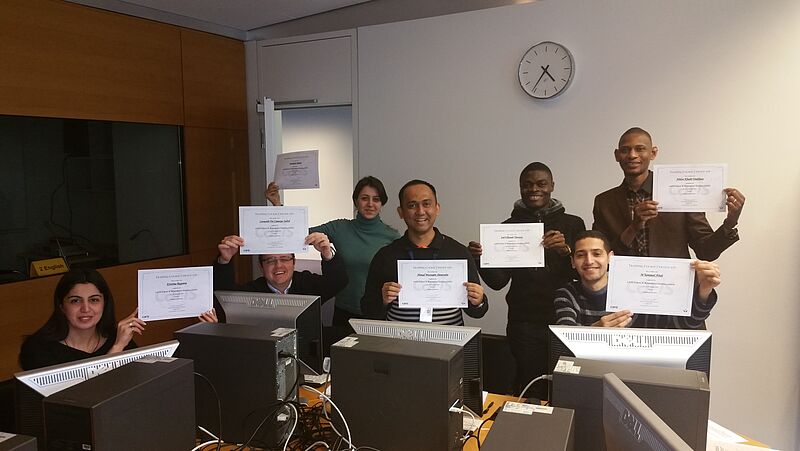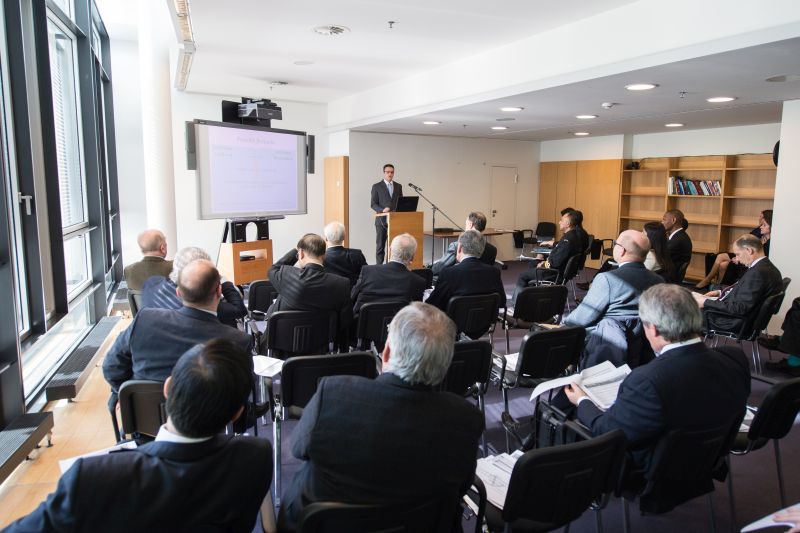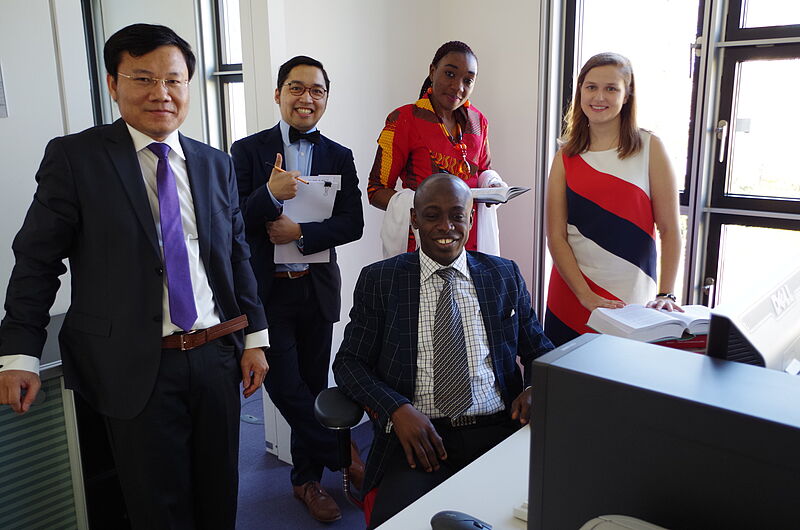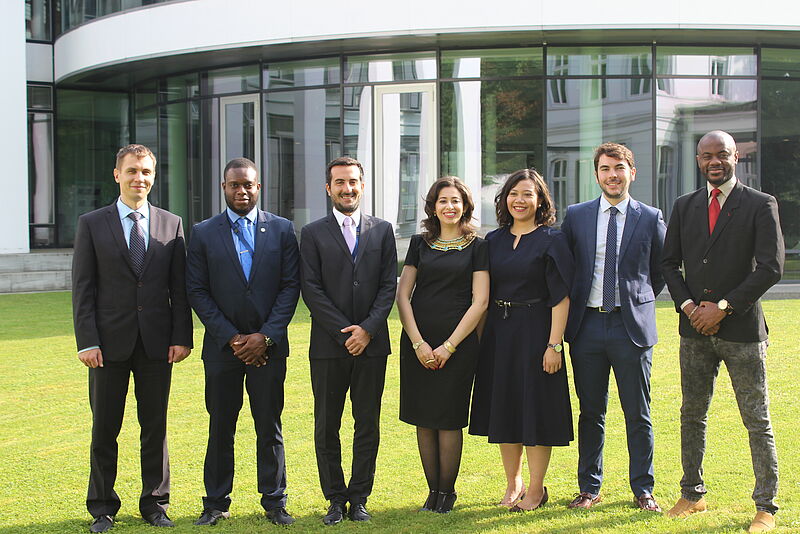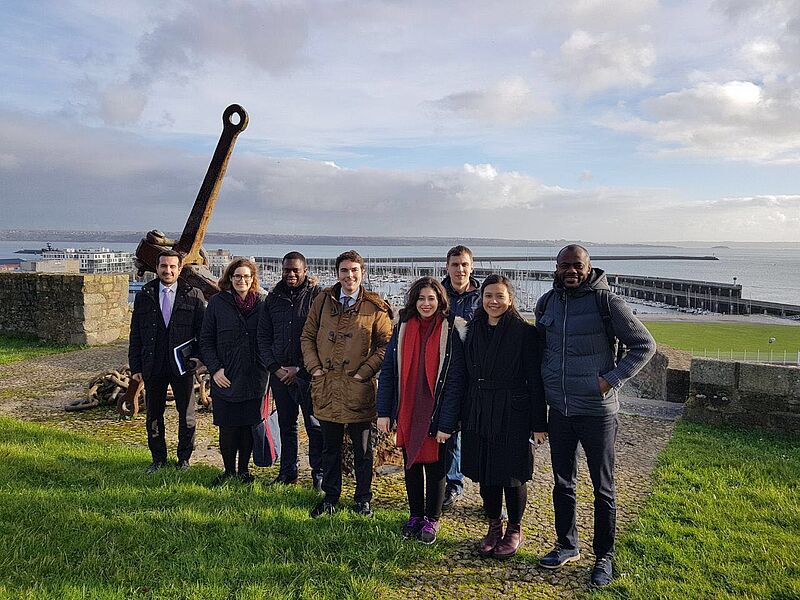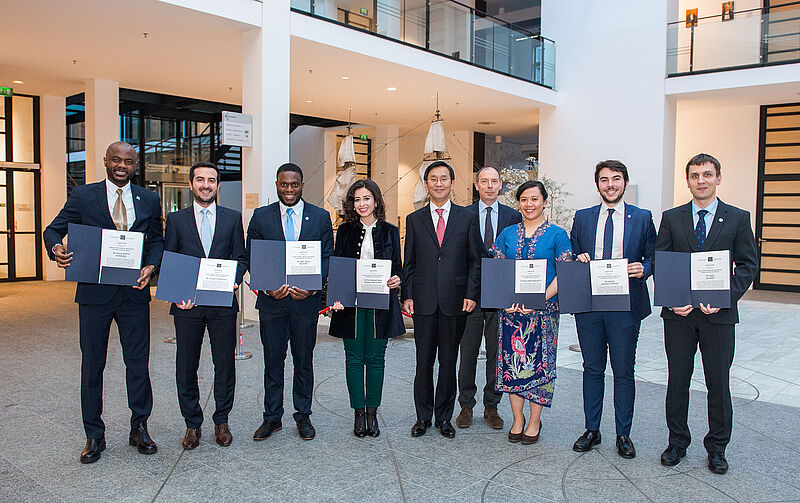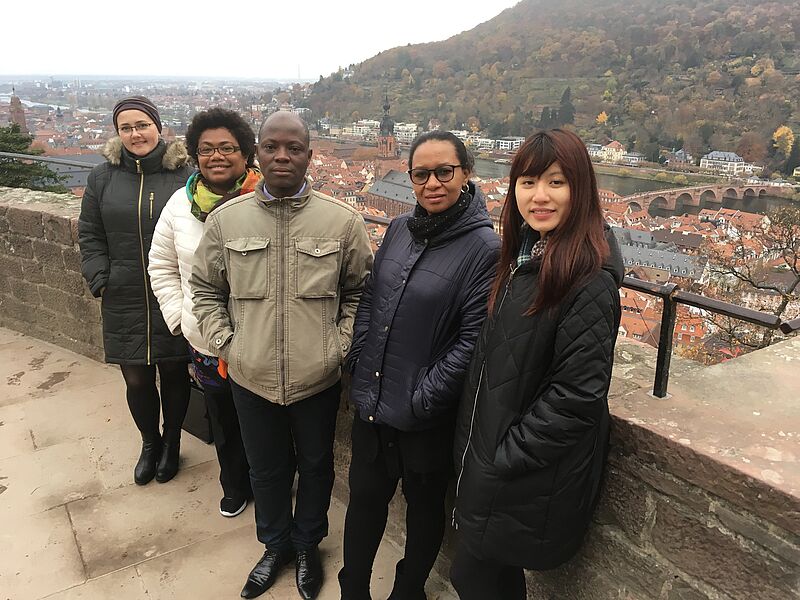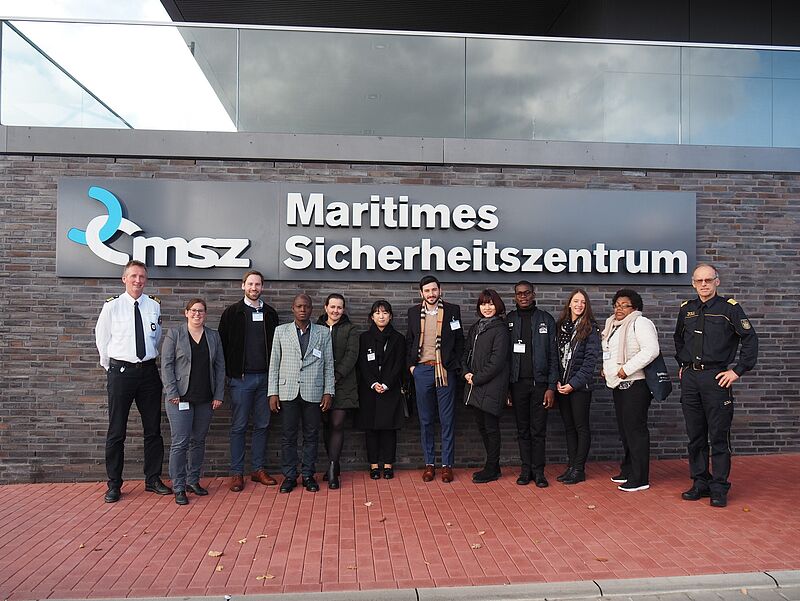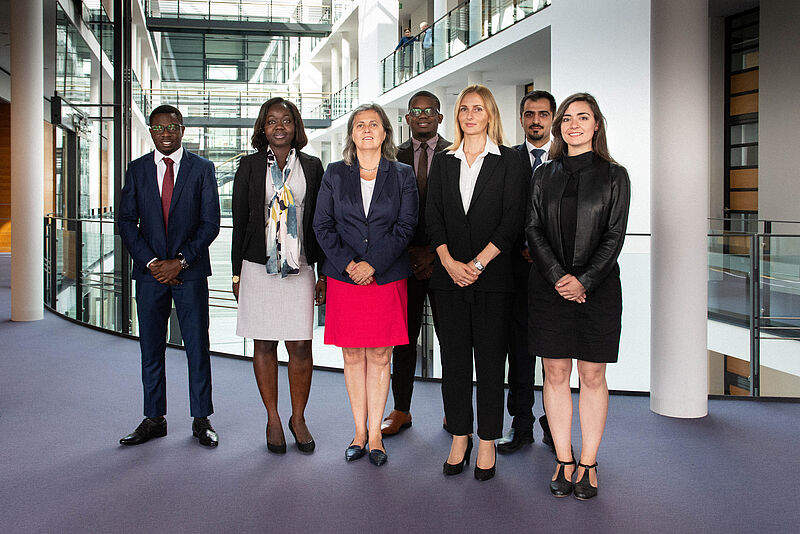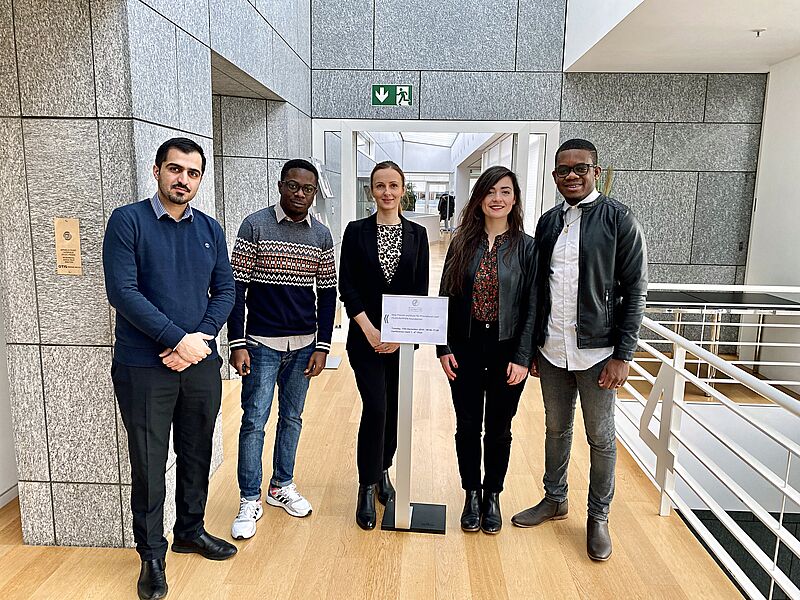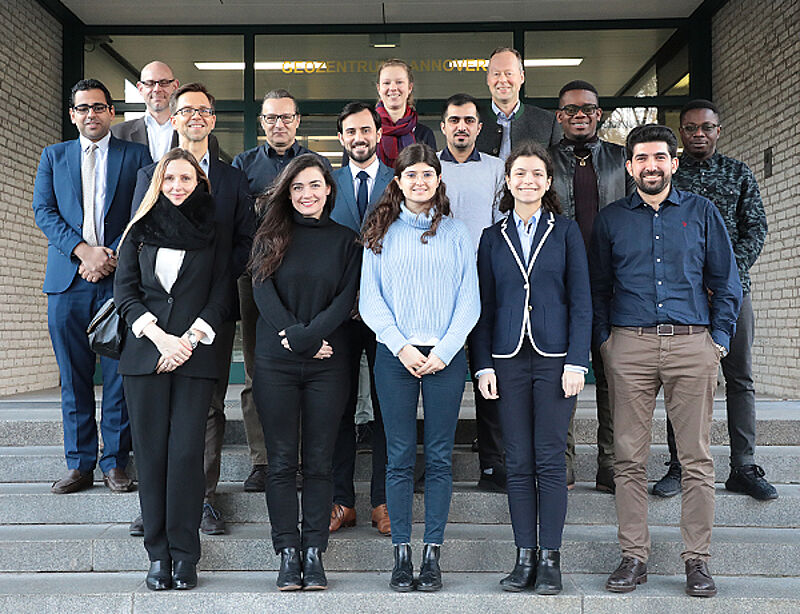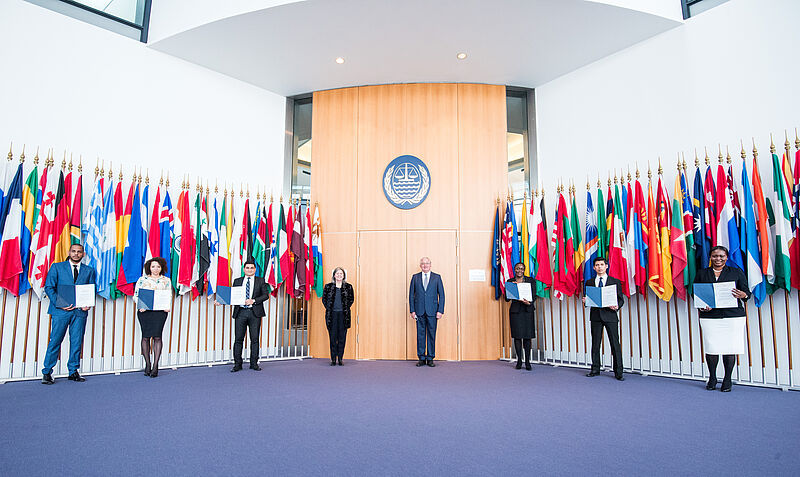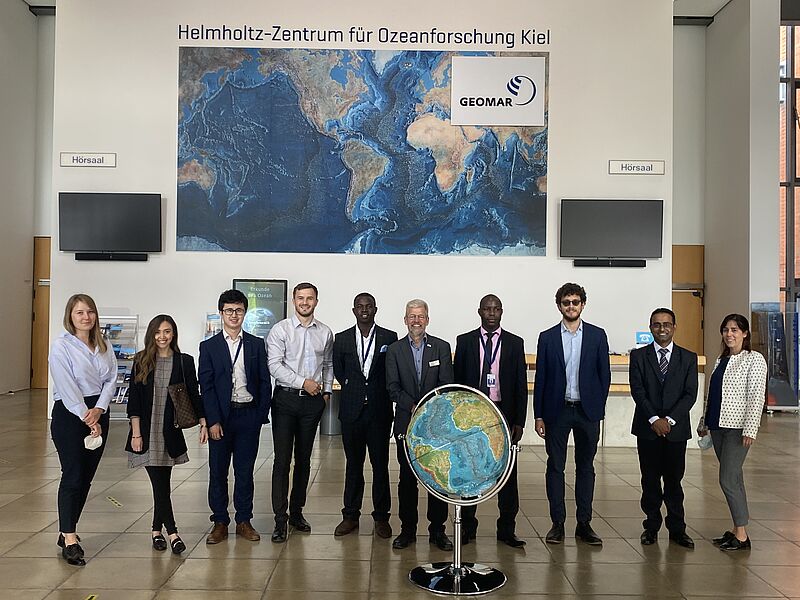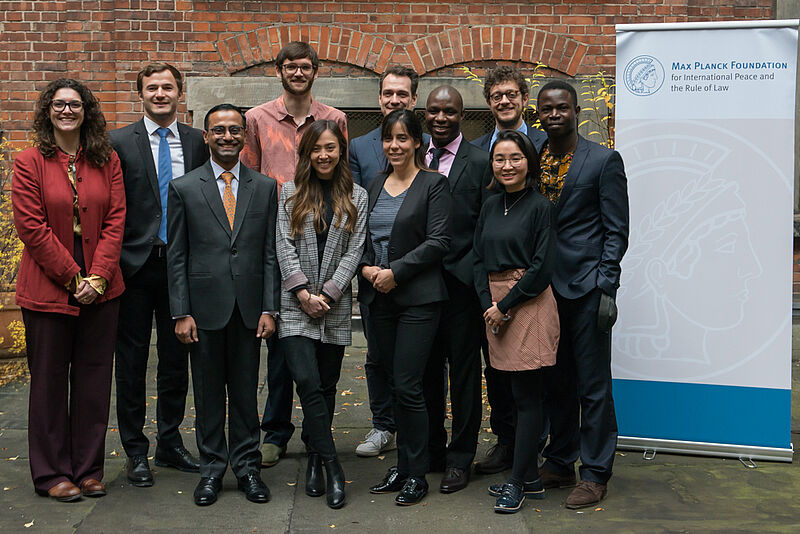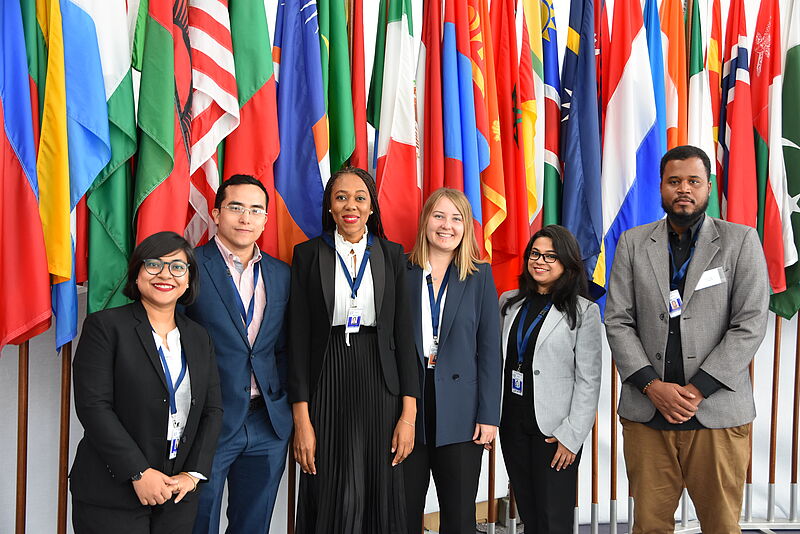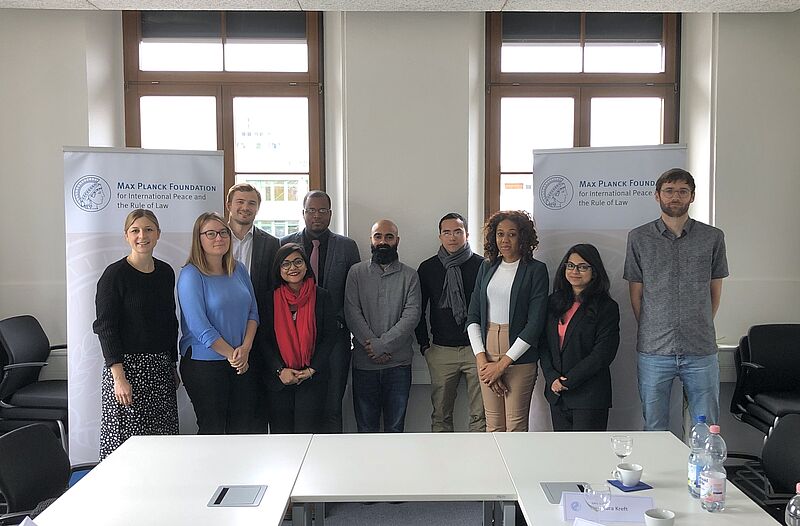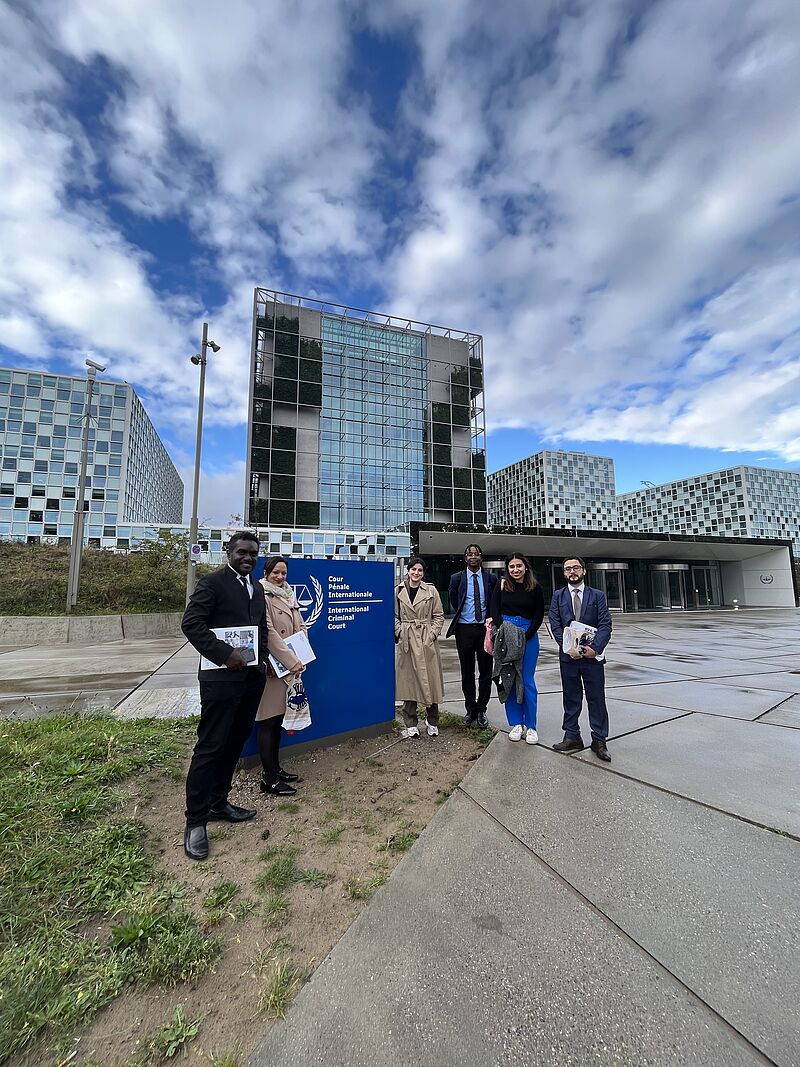ITLOS - Nippon Foundation Capacity Building and Training Programme
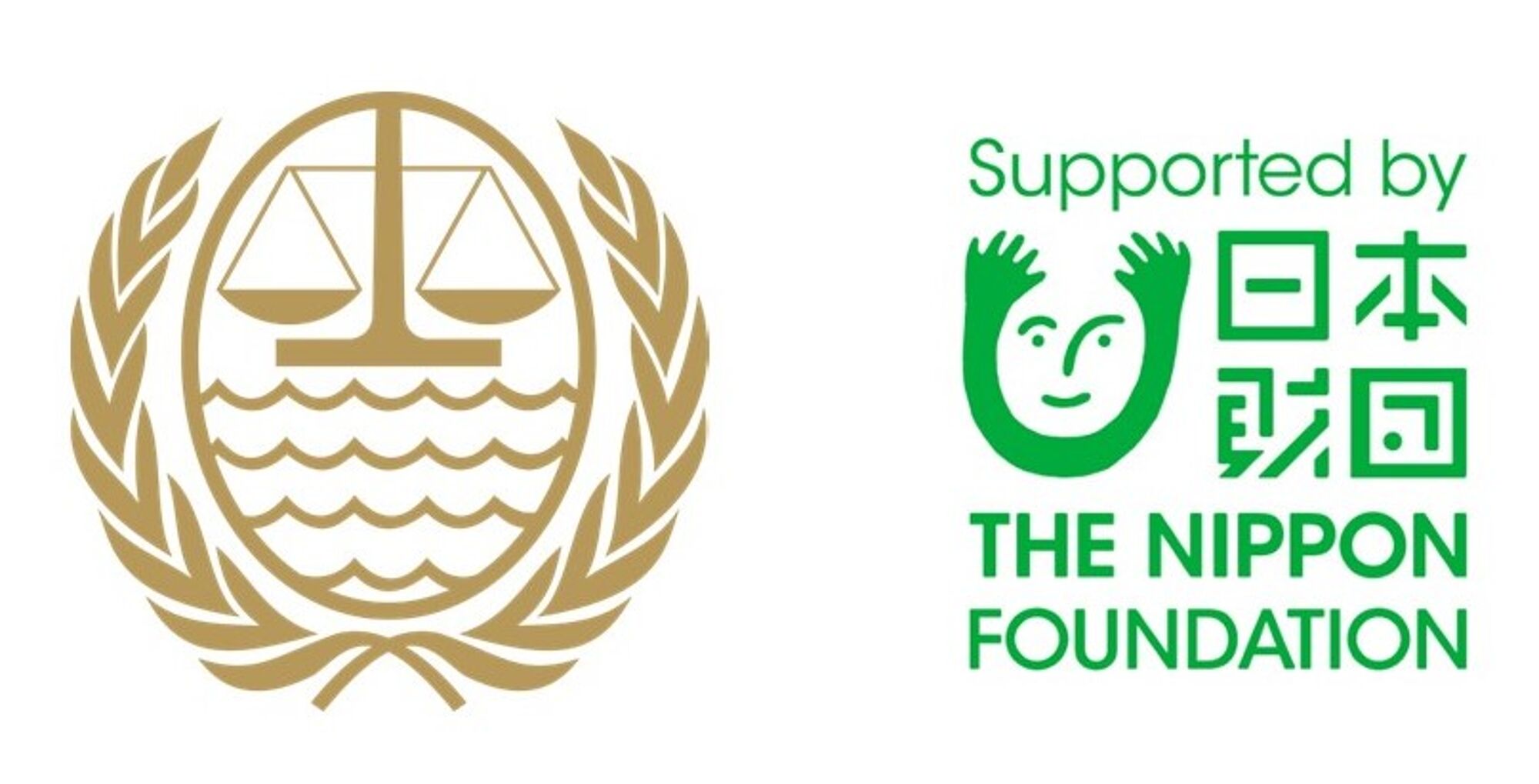
We are no longer accepting applications for the 2025-2026 programme. A call for applications for the programme year 2026-2027 will be announced in early 2026 contingent upon the availability of funds.
ITLOS-Nippon Foundation Capacity-Building and Training Programme on Dispute Settlement under UNCLOS
In cooperation with the Nippon Foundation, the Tribunal runs an annual capacity-building and training programme on dispute settlement under the United Nations Convention on the Law of the Sea ('UNCLOS').
The full-time programme, which runs for nine months and begins in July each year, takes place at the seat of the Tribunal in Hamburg, Germany. Contingent upon the availability of funds, a call for applications is generally announced each year during the month of January or February.
The programme is aimed at junior to mid-level government officials and researchers mainly from developing countries who are currently working on issues related to the law of the sea, maritime law or dispute settlement. It provides participants with a unique opportunity to develop their legal skills and deepen their practical knowledge of dispute settlement in the law of the sea under UNCLOS.
All participants' costs, including travel, accommodation, medical insurance and a monthly allowance, are covered by the Nippon Foundation.
Lectures
A series of lectures takes place throughout the nine months of the programme. Lectures are generally held over the course of two days, offering the fellows the possibility of close debate with the lecturers. The faculty of lecturers is drawn from Judges of the Tribunal, Registry officials, United Nations and international organizations, universities, law firms and other relevant institutions.
At the beginning of the programme, the fellows take part in the four-week Summer Academy of the International Foundation for the Law of the Sea. This course focuses on law of the sea and maritime law and is attended by around 40 young professionals from around the world working in the fields of law of the sea and maritime law.
Some examples of lectures given during recent programmes are:
Dispute settlement under UNCLOS
- The mechanism for the settlement of disputes under Part XV of UNCLOS with a special focus on ITLOS
- Contentious and advisory proceedings
- Giving evidence before international courts and tribunals
- Provisional measures
- Prompt release
International organizations and the law of the sea
- The role of international organizations in the implementation of UNCLOS
- The work of the Division for Ocean Affairs and the Law of the Sea, Office of Legal Affairs, United Nations
- The mandate and work of the Commission on the Limits of the Continental Shelf under UNCLOS
- The interaction between the International Seabed Authority and the Tribunal
Current issues related to the law of the sea
- Law of maritime delimitation
- Law of the sea and human rights
- The Arctic and UNCLOS
- The establishment of the limits of the continental shelf
- Fisheries management
- Marine scientific research
- Marine biological diversity of areas beyond national jurisdiction
International environmental law
- General principles of international environmental law
- UNCLOS and the regional seas programmes
- The precautionary principle and the protection of the marine environment
- Climate change and the law of the sea
- Biodiversity and protection of ecosystems
Maritime law lecture series
- Maritime security
- Ship registration
- Vessel pollution
International law lecture series
- Sources of international law
- law of international organizations
- State responsibility
- Law of treaties
Training
Training sessions, workshops, and mock cases are arranged in order to enhance the practical and professional skills of the fellows.
The programme offers training in negotiation and mediation. Workshops are organized to prepare the fellows for their potential role as agents, counsel, or legal advisers in cases before international courts and tribunals. The tools used for this purpose include exercises in drafting documents relating to cases, attendance at oral proceedings at the Tribunal, the International Court of Justice or the Permanent Court of Arbitration, and presentation skills using audio-visual tools. Mock cases are also held, as well as training in maritime delimitation.
Collaborating institutes
An integral part of the training and capacity-building programme on dispute settlement under UNCLOS is the cooperative arrangement with Max Planck Foundation for International Peace and the Rule of Law in Heidelberg. Cooperation is undertaken in the following areas:
- Max Planck Foundation for International Peace and the Rule of Law in Heidelberg: training on conflict resolution.
Study visits
Group visits of between two and five days complement the knowledge gained and training given in dispute settlement and issues/topics related to the law of the sea. Accompanied by a legal officer, the fellows are given exclusive access to experts from the institutions and have the chance to attend hearings or meetings.
In previous years, the following visits have been organized for the fellows:
Belgium: Brussels
Germany: Berlin, Bremen, Cuxhaven, Hamburg, Hanover, Kiel
- Alfred Wegener Institut
- Federal Coastguard
- Federal Institute for Geosciences and Natural Resources
- Federal Maritime Hydrographic Agency
- GEOMAR Helmholtz Center for Ocean Research Kiel
- Hamburg Port Authority
- Maritime Safety and Security Centre
Italy: Rome
Switzerland: Geneva
The Netherlands: The Hague
United Kingdom: London
Research
Research on law of the sea disputes and other ocean matters relevant to governments and institutions of the participants is an integral part of the training. After a training session on legal research methodology, the fellows undertake research using the library facilities of the Tribunal. Participants undertake their research under the guidance and supervision of the Registry. Participants have also the opportunity to refer questions concerning their research topics to the Judges of the Tribunal. The results of the research are presented to the Judges of the Tribunal at the end of the programme.
Eligibility
- Applicants must be between the ages of 25 and 40.
- Applicants must have a first university degree in law and demonstrate a capacity to undertake independent scientific research, study and training.
- Applicants must be:
- junior to mid-level government officials from an administration or government agency, dealing with ocean affairs or maritime matters as well as legal issues relating thereto; or
- researchers from an institute (academic or government) dealing with ocean-related or maritime matters as well as legal issues relating thereto.
- Applicants must indicate the research topic which they intend to pursue during the programme. The research topic should address legal issues of relevance to the State concerned regarding the implementation of UNCLOS, in particular Part XV thereof.
- The administration or institute nominating the applicant must indicate on the nomination form the tasks performed by the applicant and explain the extent to which the training programme will benefit the institution/State concerned.
- Applicants must have an excellent knowledge of one of the official languages of the Tribunal (English and French) and a working knowledge of the other language. The lectures and activities of the Programme are mainly held in English.
Procedure
The following documents must be submitted in order for an application to be processed:
- Fellowship Application Form to be duly completed, signed and submitted by the applicant.
- Nomination Form to be duly completed, signed and directly submitted by the nominating agency. The submitted form must be typed.
In the case of government officials, the nominating agency should be a relevant governmental body. For researchers, the nominating agency may be the institute or academic department of the university to which they are affiliated.
Nominating agencies are invited to submit two copies of the Nomination Form:
- One scanned version of the signed original; and
- One electronic version.
The Nomination Form may be preferably sent by e-mail to training@itlos.org or by fax to: (+49 40 35607-245) or by post to:
Office of the Registrar
International Tribunal for the Law of the Sea
Am Internationalen Seegerichtshof 1
22609 Hamburg
Germany
Conditional acceptance to the programme
Admitted applicants must submit the following documents:
- A medical certificate issued by a duly qualified physician stating that they are in good health and fit to complete the entire programme (from July 2025 until March 2026). The certificate must indicate that the admitted applicant is able to travel inside Germany and overseas.
- A certificate issued by the nominating agency indicating that the candidate is granted permission to travel to Hamburg and to participate in the full nine-month programme from July 2025 to March 2026.
Final admission to the programme will be contingent upon submission of the medical and permission certificates. Admitted applicants must submit a copy of the certificates within two weeks of announcing the admission. The original certificates must be submitted on the first day of the programme and must be in either English or French or accompanied by a certified translation.
Participants’ costs, including travel, accommodation, medical insurance and a monthly subsistence allowance, are covered by the Nippon Foundation.
Participants are responsible for obtaining a visa for Germany for the period of the programme at their own cost, although assistance may be provided in order to facilitate the visa application process. Visas for the study visits are arranged by the programme coordinator and the costs covered by the programme.
During the programme, the fellows become part of the ITLOS community and are fully integrated in the life of the Registry for nine months. They interact with staff, Judges and participants of the other training programmes run at the Tribunal. As ITLOS alumni, the fellows join a growing network of young professionals from around the world working in the field.
Fellows are provided with a fully equipped office with computer, printer and internet connection for the duration of the programme. Fellows have access to the Tribunal’s specialized Library, which houses a comprehensive collection on the law of the sea and related subjects, such as maritime law, environmental law, ocean affairs, coastal management, international courts and tribunals, international organizations, dispute settlement, arbitration, and general issues of public international law.
Accommodation in the vicinity of the Tribunal is provided in studio apartments, with a bedroom/sitting area, kitchen and bathroom.
During their first weeks in Hamburg, the fellows are introduced to life in Germany and given German language classes. Language training in either English or French may also be provided.
Since the programme began in 2007, we have welcomed 113 fellows from 83 States. They are now part of the ITLOS Alumni Network.
For further information please contact:
The ITLOS-Nippon Programme Coordinator
International Tribunal for the Law of the Sea
Am Internationalen Seegerichtshof 1
22609 Hamburg
Germany
Tel.: (+49) 40 35607-243
Fax: (+49) 40 35607-245
training@itlos.org














